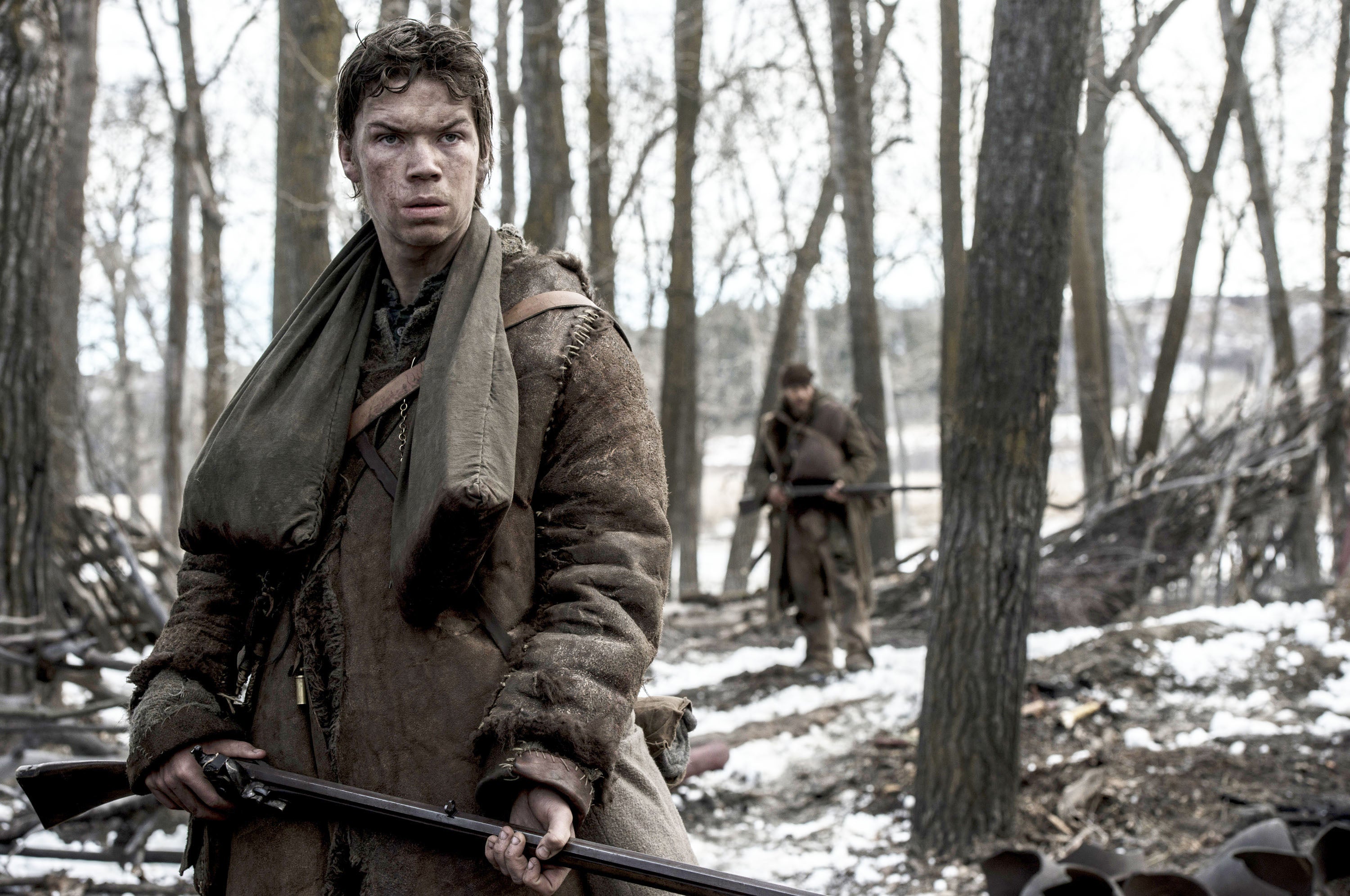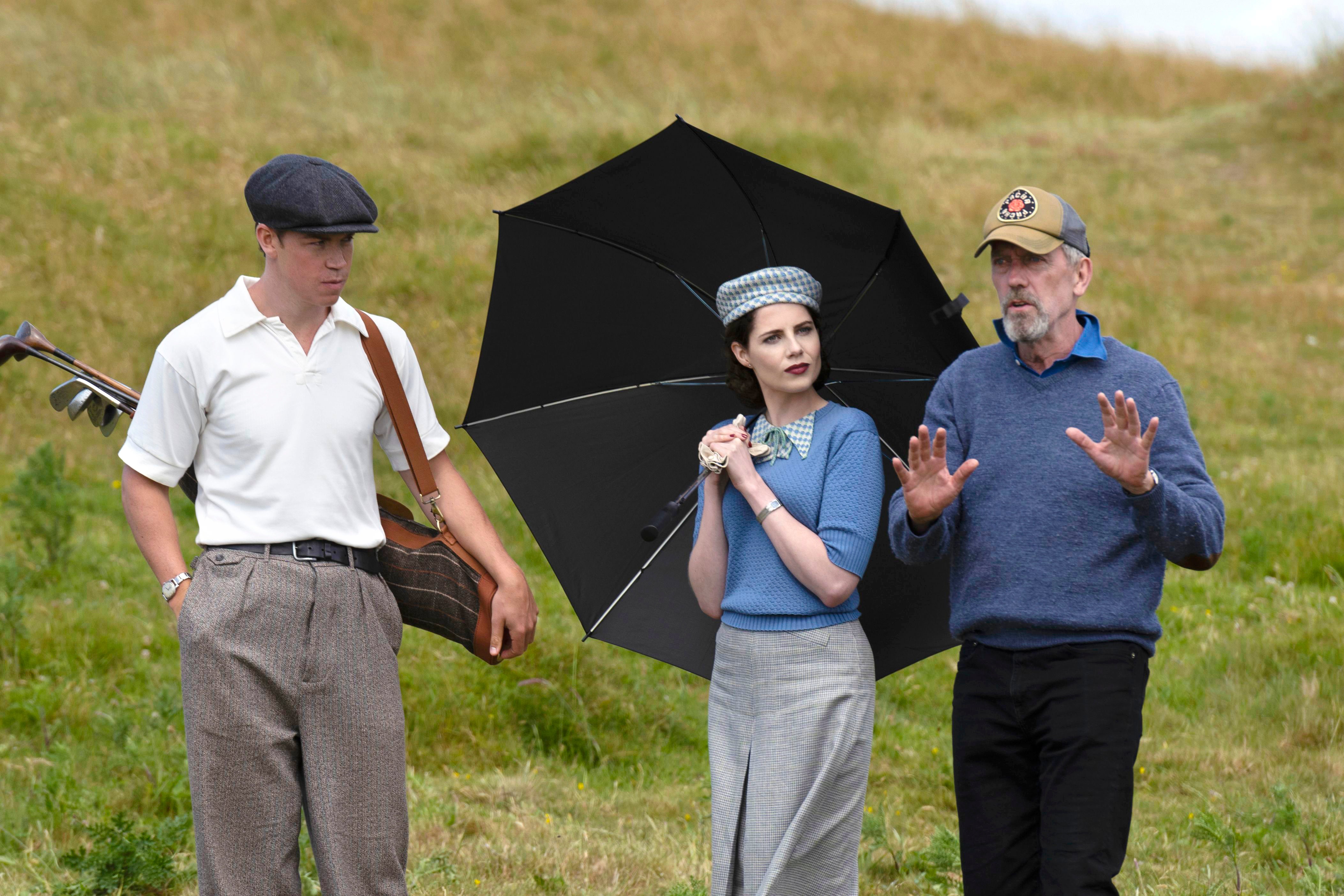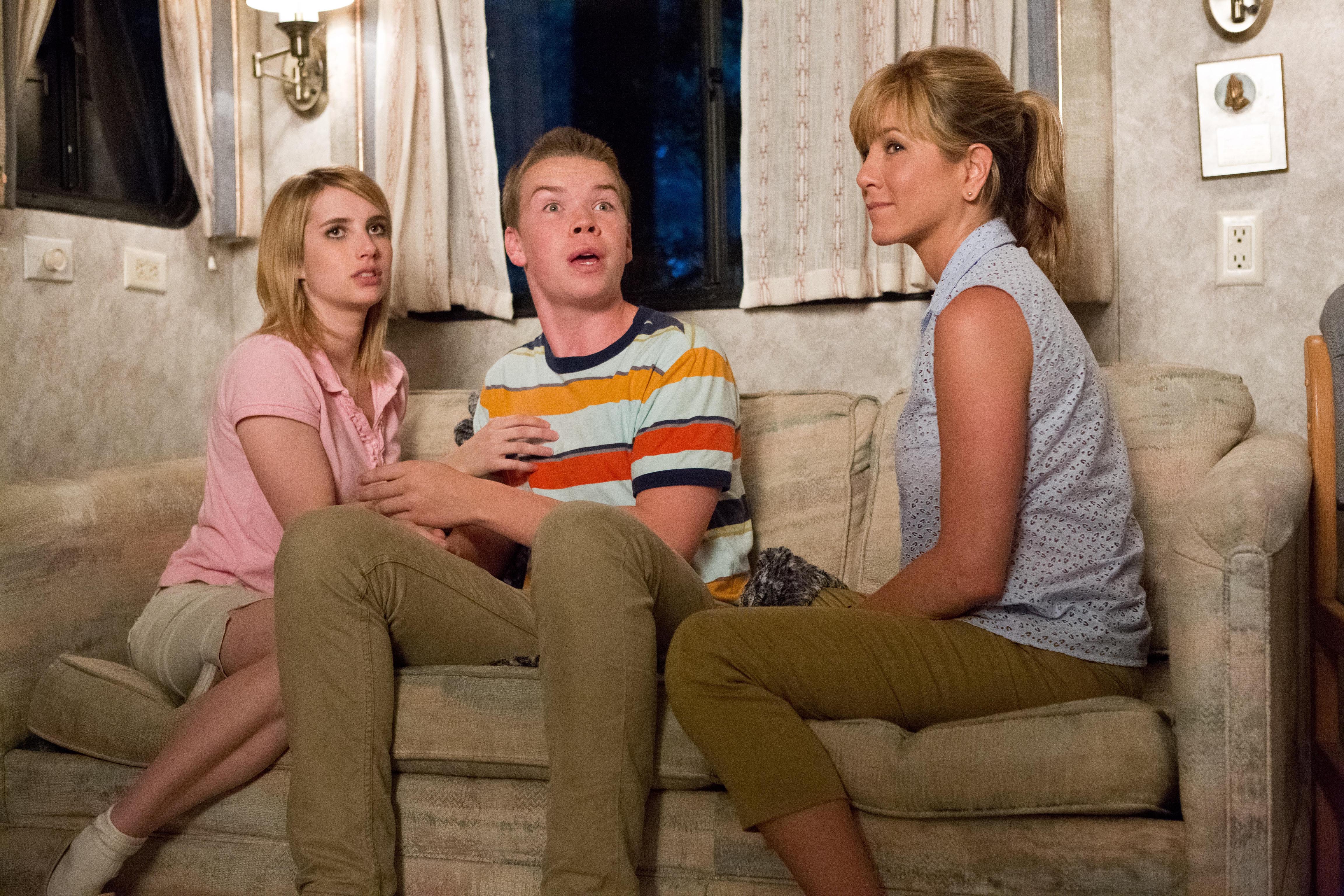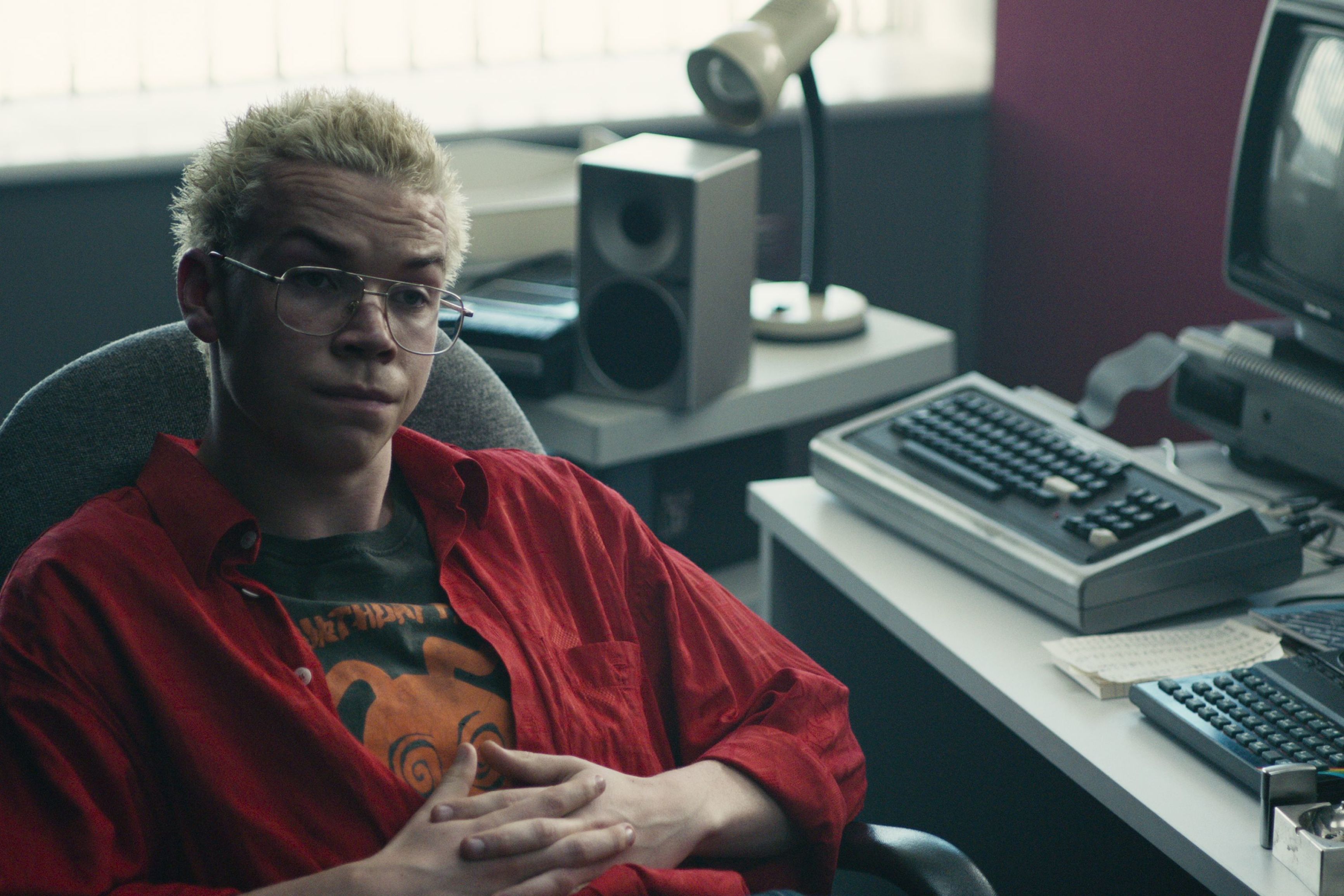Will Poulter: ‘Method acting shouldn’t be used as an excuse for inappropriate behaviour – and it definitely has’
The actor, who’s been transforming himself into ‘the perfect being’ for his role in ‘Guardians of the Galaxy 3’, takes a break from his ferocious training schedule to tell Ellie Harrison about his new drama ‘Why Didn’t They Ask Evans?’, his fraught relationship with social media, and the aftermath of that three-way kiss in ‘We’re the Millers’


Your support helps us to tell the story
From reproductive rights to climate change to Big Tech, The Independent is on the ground when the story is developing. Whether it's investigating the financials of Elon Musk's pro-Trump PAC or producing our latest documentary, 'The A Word', which shines a light on the American women fighting for reproductive rights, we know how important it is to parse out the facts from the messaging.
At such a critical moment in US history, we need reporters on the ground. Your donation allows us to keep sending journalists to speak to both sides of the story.
The Independent is trusted by Americans across the entire political spectrum. And unlike many other quality news outlets, we choose not to lock Americans out of our reporting and analysis with paywalls. We believe quality journalism should be available to everyone, paid for by those who can afford it.
Your support makes all the difference.Will Poulter is hiding something from me. It’s his matcha latte. We’re sitting by the lake in Battersea Park, and he’s just got back from the cafe with our drinks. “They wrote ‘Will the actor’ on the cup,” he says, laughing, a blush forming beneath his freckles. “I just want you to know that wasn’t my choice. I don’t want you to think that’s how I order coffee, because that would be mortifying. So I’m just covering that with my hand.”
The 29-year-old star of The Revenant and Dopesick squints in the sun. We’re surrounded by mums, puppies and wildlife. “It’s kinda dreamy here,” he says. “I’m a big fan of sitting by big bodies of water. It’s a calming thing.” A quack cuts through his next thought. “Ah, ducks are going to be part of this interview.” He is clad entirely in black Nike exercise wear – a gilet, tight T-shirt and shorts. “I’m going to the gym afterwards but I got a cab here,” he says. “I didn’t run here. The outfit belies how lazy I was.”
Lazy he is not. Poulter is currently in the clutches of a ferocious training schedule for his next role, as Adam Warlock in Guardians of the Galaxy 3. The character, as Marvel puts it, is “genetically engineered by scientists to be the perfect being”. His bone and muscle tissue are denser than those of a normal human. He has superhuman strength, stamina, agility and reflexes. No pressure, then.
The superhero genre is a new avenue for Poulter, who first appeared on screen at 13 as a rapscallion schoolboy in the tender indie movie Son of Rambow. Next came parts as bookworm-turned-dragon Eustace Scrubb in the Narnia film The Voyage of the Dawn Treader and a gawky teenager who snogs Jennifer Aniston in American cringe comedy We’re the Millers (more on that later).
He has the best brows in the business – their steep curve wriggling from mischief to malice at his will – offset by a gentle boyishness that makes it feel like you’re seeing an old friend when he pops up on screen. He’s ubiquitous enough to be one. Over the course of his twenties, Poulter has left Leonardo DiCaprio buried alive in the wilderness in The Revenant, played a callous, racist cop in Detroit, spouted conspiracy theories as a game creator in Black Mirror: Bandersnatch, had his lovely face skinned off in Midsommar, and pushed opioids on mining towns in Dopesick.
An eclectic variety of parts, then, none of which have required body transformation. Poulter says, cautiously and diplomatically, that preparing for Guardians of the Galaxy 3 has been “interesting”. “It’s difficult talking about it because with Marvel it’s all secret squirrel,” he says, “but the most important thing is that your mental and physical health has to be number one, and the aesthetic goals have to be secondary, otherwise you end up promoting something that is unhealthy and unrealistic if you don’t have the financial backing of a studio paying for your meals and training. I’m in a very privileged position in that respect, and I wouldn’t recommend anyone do what I did to get ready for that job.”
So what does the preparation entail exactly? “It’s been a lot of gym work and a very, very specific diet.” What does specific mean? “It means not particularly civilised at times,” he says, with a smile. “Quantities of food you wouldn’t necessarily want to ingest. And other times not enough food. I’ve gone through a series of different diets over the last few months. Now I’m in a maintenance phase, which is quite nice. I’m not eating copious amounts of food to bulk, and I’m not cutting. I’m just maintaining my weight. I’ve gone through periods of looking at food and feeling like I can’t face it, and then you blink and the next minute you’re ready to eat furniture because you’re so hungry.”
The last time he drank was New Year’s Eve. “The whole social side of your life has to take a back seat,” he says. “I’m in a routine that is so rigid that being able to go out for dinner with friends is not something I’ve been able to do. I’m looking forward to being able to again.” A goose waddles over and has harsh words with a labrador. “God, it’s kicking off!” says Poulter.

The actor may be making a physical transformation for Guardians of the Galaxy 3, but he hasn’t followed the example of Benedict Cumberbatch and Kirsten Dunst – who ignored each other on set while filming The Power of the Dog – by refusing to speak to Marvel supervillains when the cameras stop rolling. “For me, that hasn’t been necessary,” he says. “On Detroit, my African American colleagues – who my character was responsible for brutalising – and I were all very much unified in that challenge, and we got to know each other and hung out.

Watch Apple TV+ free for 7 days
New subscribers only. £8.99/mo. after free trial. Plan auto-renews until cancelled

Watch Apple TV+ free for 7 days
New subscribers only. £8.99/mo. after free trial. Plan auto-renews until cancelled
“When it comes to an actor’s process, whatever that is, so long as it doesn’t infringe on other people’s and you’re being considerate, then fine. But if your process creates an inhospitable environment, then to me you’ve lost sight of what’s important. Method acting shouldn’t be used as an excuse for inappropriate behaviour – and it definitely has.”
Poulter’s next role, in Britbox’s Agatha Christie mystery Why Didn’t They Ask Evans?, is a world away from the MCU. He plays floppy-haired Englishman Bobby Jones, a young naval officer who investigates the death of a man who asks the cryptic question on his dying breath. It’s Hugh Laurie’s directorial debut, and Poulter, even after featuring in triple Oscar winner The Revenant, was starstruck.
“I would cringe at the thought of him knowing this, but in lockdown, being on a Zoom with Hugh Laurie and having him talk to you about a part he potentially sees you in was just mental. And that still is, looking back, a really crazy moment.” He talks for a while about Laurie’s “funny bones” and what a pleasure he was to work with, when a bird squawks at his feet. “Exactly,” he says, nodding at the creature.

With his casting in Guardians, it feels as if Poulter might look back on a project like Why Didn’t They Ask Evans? with some nostalgia. It could be the last British TV drama he does for a while. He looks genuinely crushed. “Oh, no, no,” he says, tucking a lock of blonde hair behind his ear. “I really hope it’s not my last project like that. I like the contrast. And I’d work for Hugh again in a heartbeat.”
Poulter is sincere and measured. He seems like the kind of person who likes to ruminate, and never stumbles over his words or values. Perhaps it runs in his blood – the Poulters come across as a high-achieving, conscientious bunch. His mother was a nurse, his father is a medical professor, and his siblings variously do volunteer work, run a vaccination centre and help teach children with special needs.
It didn’t feel real or healthy to consume the discussions about my appearance on social media
He didn’t think about following his parents into medicine. “My grades meant it was never a consideration, unfortunately,” he says. Poulter had learning difficulties and dyspraxia, and found himself more drawn to drama at his school, Harrodian in west London, which also produced actors Robert Pattinson, Tom Sturridge and George MacKay. MacKay was in the year above Poulter, and the pair are close friends. In 2014, Poulter beat his buddy to become a Bafta Rising Star, but a few years later, he lost out to him on the lead role in the Oscar-winning film 1917. “If you don’t get it, it’s great when your friend gets it,” he says.
While Poulter was technically a child actor, it wasn’t until he starred in We’re the Millers, aged 19, that he started dealing with the trappings of fame. The road movie, from Dodgeball director Rawson Marshall Thurber, follows the story of David Clark (Jason Sudeikis), a small-time drug dealer smuggling marijuana into the US from Mexico in order to settle a debt to a crime kingpin. He reckons he won’t be given any trouble at the border if he rents an RV and recruits three misfits to pose as his nuclear family – Jennifer Aniston plays his fake wife, with Emma Roberts and Poulter starring as his pretend children.

In one excruciating scene, which has been viewed 523,000 times on YouTube and won an MTV Movie Award for Best Kiss, Aniston and Roberts’s characters teach Poulter’s teenage boy how to kiss. Poulter was 19 at the time and Aniston was 45. “I did look young,” says Poulter, smarting at the memory. “It’s one of those things – any scene where there’s some level of intimacy in the context of a broad comedy, where it’s very much a joke and it’s not played with romantic sincerity, is always really awkward. Obviously my main concern in that moment was for Jen and Emma, who I felt very sorry for.”
“It’s weird,” he continues, sounding slightly pained. “It’s one of those scenes that, to be honest, 60 per cent of bars and pubs I go into, blokes shout things about that scene at me or ask weird questions I’ve been asked a million times before. I don’t even know how to respond to them. That’s the unfortunate thing with that scene. But Jennifer was an amazing sport. She was very supportive and took care of me, and was aware that, being a 19-year-old kid in that scenario, I was very nervous. This was before intimacy coordinators, which I really would have appreciated, and I’m sure Emma and Jen would have, too.”

It was after We’re the Millers came out that Poulter started getting recognised a lot and had his privacy invaded. “That’s definitely taken some adjusting to,” he says. “That began when I was 19, when I was at uni, where people do embarrassing s***. It was weird, and the thing I have wrestled with the most – the impact that kind of thing has on your mental health. I naturally have quite a lot of anxiety, so dealing with the unwanted attention that comes with being in the public eye brings additional challenges.”
One way in which Poulter has sought to protect his mental health is by taking a step back from social media in 2019. He had been suffering abuse from internet trolls after Bandersnatch came out. “The reaction to my physical appearance – be it positive or negative – felt so ancillary and unrelated,” he says.
“People are well within their rights to talk about it however they wish, but I have the right and liberty to just step away and not expose myself to it. If the opinion of someone I’ve never met before online is overwhelmingly positive, I don’t carry that over into the real world and then develop an inflated sense of myself. But it’s harder, being a human – because you’re inclined to do the opposite, when someone says something really negative about you – not to let that affect you and your mental health.”

Poulter says that social media is “more about saying the most controversial or the meanest or the funniest thing, at whatever expense”. He compares it to a party, where some people are having a good time and treating each other nicely, and others are doing things you’re not into. “You don’t have to be there,” he says. “Or you can just dip in for one drink and go home early. It didn’t feel real or healthy to consume the discussions that were going on around my appearance.
“And it’s painful to see how vitriolic people can be – I have major concerns for how it’s affecting current and future generations’ mental health. I really do worry about that.” Poulter now uses his Instagram and Twitter solely to campaign for myriad causes, from anti-bullying initiatives to helping those affected by the conflict in Ukraine.
Poulter has also been fawned over for his appearance. Pictures of him topless in the staggering opioid-crisis drama Dopesick went viral in October. He didn’t feel comfortable engaging with that either, especially as the subject matter of the show was so heavy. “There were certain scenes we were shooting where crew members were so emotional, they had to step away, because they had loved ones who had been affected by it,” he says.
Michael Keaton, who plays a Virginia doctor addicted to OxyContin in the show, lost his nephew to drugs. “His performance, in the flesh, I cannot explain how good he is,” says Poulter. “It was so frightening. Such was the power of his performance, it meant all I had to do was just sit opposite him and just kind of react.”
And with that, he’s off, back to the gym in his quest to emulate the perfect being. Good luck, I say. “I appreciate that. I’ll need it.”
‘Why Didn’t They Ask Evans?’ premieres on Britbox on 14 April



Join our commenting forum
Join thought-provoking conversations, follow other Independent readers and see their replies
Comments